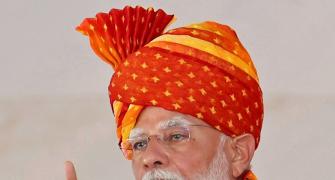A committee of secretaries is considering a Rs 4,000-crore (Rs 40 billion) market intervention fund to provide states interest-free loans to augment foodgrain and edible oil availability, among other items.
The money will enable states to intervene in the market by buying and distributing essential items to economically weaker families that are eligible for government assistance.
The scheme, mooted by the Union food ministry, is being suggested at a time when the government is under pressure from the recent surge in essential commodity prices, which has pushed inflation to a 13-year high of nearly 12 per cent.
Several states are headed for elections over the coming months, while elections to the Lok Sabha must be complete by May next year. A scheme of this sort is expected to provide political benefits to the incumbent governments.
The draft proposal says, every state with more than 5 million families, including those below the poverty line will be eligible for a Rs 150-crore (Rs 1.5 billion) loan. States with between one million and 5 million families will be eligible for a Rs 100-crore (Rs 1 billion) loan, while those with less than 1 million such families will be eligible for a Rs 5-crore (Rs 50 million) loan.
The money will be granted as an interest-free loan recoverable after 10 years, with repayment conditions that are uniform for all states.
A major part of the disbursement will take place in the current fiscal 2008-09, and a small portion may be rolled over to the next year. States will be required to contribute a minimum of 25 per cent to this non-Plan scheme.
The state government will, in turn, release funds to the state civil supply corporation, marketing federations and other similar agencies.
The money is to be used by states as working capital for procurement, storage, transportation and retail marketing of essential commodities, other than the targeted public distribution system. The money can also be used to upgrade infrastructure, but not to buy items like office vehicles or upgrade information technology.
The scheme may prove handy in helping cushion the poor and economically weaker sections from high prices, but is likely to put more strain on central government finances.
In fact, the Department of Economic Affairs has pointed out that the additional budgetary provision required for the scheme would impact the fiscal position.








